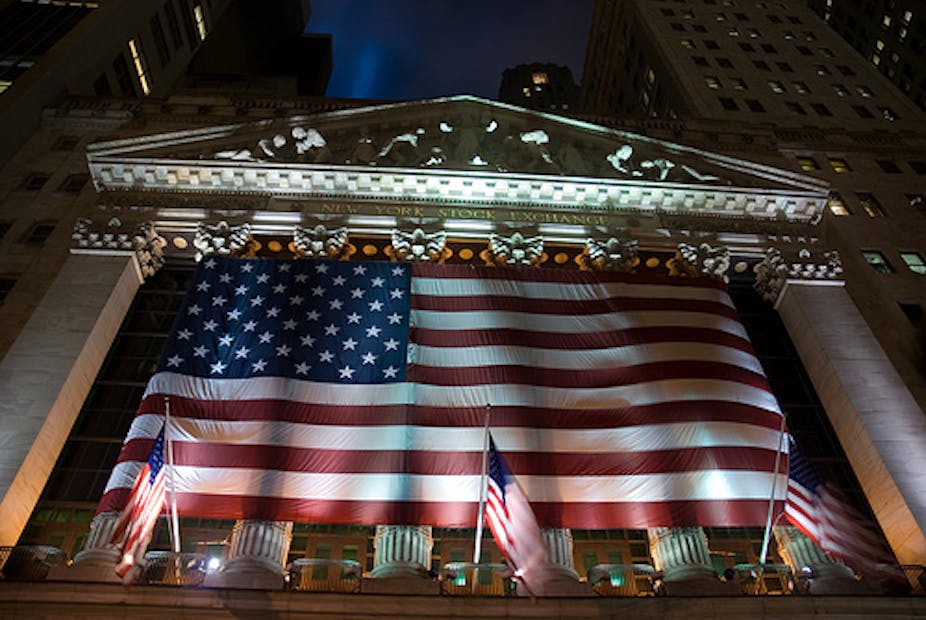The agenda of the Australian Securities and Investments Commission Annual Summer School in Sydney was dominated by discussions on how to reduce systemic risk.
The noted increase in the regulatory perimeter does not necessarily equate to risk reduction. Dr Adrian Blundell-Wignall, senior representative of the Organisation for Economic Cooperation and Development, warned us that we are once again “off to the races”.
While undoubtedly an arresting metaphor, it also reflects ongoing concern that the banking industry has not internalised the social costs of the crisis.
Recent months have seen a marked resurgence in derivative trading. These derivative contracts far outweigh the actual underlying collateral. Mr Blundell-Wignall called on Australian, Asian and Canadian banks to prohibit proprietary trading or ring-fence retail from “casino banking” as a matter of urgency.
In a provocative speech, the OECD executive warned against complacency. He indicated that past self-imposed limitations on proprietary trading offered no guarantee of future trajectories with the region. Global restrictions were necessary to prevent the very regulatory arbitrage that banking executives in the United States argue will result as a consequence of attempts there to restructure the industry.
His comments come as US regulators work their way through voluminous submissions on the proposed Volcker Rule. The rule is named after the former chairman of the Federal Reserve, Paul Volcker. It was originally framed as a mechanism to restrict institutions protected by an implicit government guarantee from trading on their own account.
The simplicity of the initial concept has transmogrified into a gargantuan formal proposed rule, informed by a maze of exceptions. The change prompted Dennis Kelleher (head of Better Markets, a financial regulatory reform group) to declaim it as “the bastard child of the banking industry”.
In a strongly worded letter to regulatory authorities, Paul Volcker concurred, albeit using more diplomatic language. He argued that the rule could only work if the underlying purpose was reflected in banking culture. “My sense is that success is strongly dependent on achieving a full understanding by the most senior members of the bank’s management, certainly including the CEO, and the Board of Directors, of the philosophy and purpose of the regulation,” he wrote.
“Holding substantial securities in a trading book for an extended period obviously assumes the character of a proprietary position, particularly if not specifically hedged. Various arbitrage strategies, esoteric derivatives, and structured products will need particular attention, and to the extent that firms continue to engage in complex activities at the demand of customers, regulators may need complex tools to monitor them,” he continued.
The plaintive nature of the letter was touchingly naive. It prompted considerable ire rather than understanding from Wall Street.
“Paul Volcker, by his own admission, has said he doesn’t understand capital markets. Honestly, he has proven that to me,” the CEO of JPMorgan, Jamie Dimon fulminated.
He claimed that the reform risked disrupting legitimate market-making activity. Foreshadowing - but subverting - the argument made by Adrian Blundell-Wignall in Sydney, the JPMorgan executive argued that the proposed reform would not end the trading; it would merely send it overseas.
The debate is exceptionally revealing of the dynamics of financial regulation.
In total, over 14,479 submissions were submitted before the comment closing date. The vast majority took the form of individual variations of generic letters. These were coordinated by public advocacy groups, such as Americans for Financial Reform. The scale of the campaign reflects ongoing public anger. In certain cases, it went beyond understandable - if inchoate - rage at the behaviour of the banks.
The Occupy the SEC movement offered a 325-page critique. It called for strengthening of the Volcker Rule, in particular a reverse of a planned exemption covering the sale of asset-backed securities.
“The Volcker Rule was woefully enfeebled by the addition of numerous loopholes and exceptions,” it argued. “We encourage the agencies to stand strong against the flood of deregulatory pressure that they have and will continue to face in connection with their implementation of the Volcker Rule.”

The submission highlights the fact that battles over the trajectory of regulatory reform take place in the implementation stage. It also demonstrates that the nature of the engagement is itself circumscribed by the initial terms of reference, in this case the proposed exemptions.
Wall Street is not taking any chances. Over 240 submissions were lodged. Rather than relying on industry associations, individual corporations filed multiple comment letters.
The volume of submissions makes it highly unlikely that the Volcker Rule can be implemented on schedule in July this year without the SEC and other agencies risking a judicial challenge that they had failed to undertake sufficient cost-benefit analysis.
The delay is problematic for two reasons.
Internationally, postponement limits the impetus on other jurisdictions to pursue structural change in the industry. Domestically, the delay feeds into and facilitates an enormous increase in the cost of the upcoming presidential election.
The main Republican contender, Mitt Romney, has already pledged to revoke the Dodd-Frank Act, which provides the legislative basis for the Volcker Rule.
Mr Romney has received substantial support from Restore Our Future, a super political action committee (PAC) dominated by securities and investments firms.
The super PAC has raised over $30 million already and invested $7.7 million in the Florida primary alone. The emergence of the super PAC (President Obama’s re-election committee also avails of one) derives from a Supreme Court ruling in 2010. It held that corporations had an unlimited right to exercise free speech. More broadly, Goldman Sachs and Citigroup, as well as private equity giant Blackstone, are among the biggest corporate donors to the Romney campaign.
Two self-evident truths emerge from the confluence on national and international agendas.
First, the presidential election will become much more expensive. Second, internal domestic imperatives in the United States makes the Volcker Rule at this stage more an exercise in rhetoric than reality.
The starter’s pistol has gone off. Not to fire a warning shot, but to signal a return to the races.

